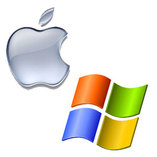
There are few battles out there that cause as much discussion as the Mac versus PC debate. There are many arguments to be made in favour of both competitors and people will bring up points both ways, many of which are subjective and not all of which are true or logical. I have both a mid-level desktop PC and a Macbook Pro so I have had experience using both. What do I prefer? The honest answer is I love both of my systems. Which one is better for you really depends.

The first thing to mention is that Macs have become a sort of status symbol. Having a glowing apple on your laptop is a way that people will notice you and is something most of us will notice. This shouldn't be either a pro or con in regards to your choice of computer, but it is important to note as it can influence buying decisions. It also means that although PCs are still the vast majority of computers, Macs are increasing their market share and it only looks to increase as Apple products become more and more popular with the masses for a lot of reasons.
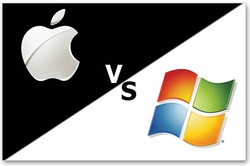
Hardware used to be a main separating point between Macs and PCs but today they have very similar innards. Apple controls exactly what pieces go into each and every Mac so you don't see a ton of different models. Macs are well built machines, using quality components and this is a good thing. PCs run the gamut in terms of the quality of each machine. You can get very inexpensive hardware and you can also get very cheap parts that will fail on you due to a huge number of manufacturers. There is no standard for PC and there are so many options to take into account. A key difference is that Macs all use a unibody design. This means that even when you get an iMac (a desktop Mac), you are using the same type of components as you would get in a Macbook Pro. Typically, the parts in an iMac are more powerful but things like the video card still use the same type of card you would get in a laptop. This doesn't mean the iMacs aren't powerful but mobile parts are generally more expensive than their larger counterparts.
One problem with Macs is that you cannot upgrade or repair your Mac easily by yourself. Apple doesn't sell Mac parts and, once your warranty is up, the labour and parts cost can be pricey. Even if you could get the parts, working with the Mac hardware can be difficult if you do not know what you are doing even with instructions. With a PC, hardware repairs and upgrades are easier and can often be done quickly with many resources online to help with installation. There are also a lot of different options for parts for PCs. This can be a problem when trying to find the best part whereas with a Mac, there are approved parts so picking the right replacement part is simple.
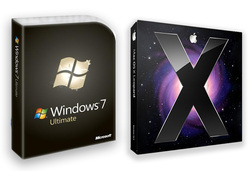
The biggest difference between a Mac and a PC, aside from the aesthetics which Apple generally does a lot better, is the operating system. PCs run Windows, which most of us have used at one time or another, and Macs run OSX. OSX is a very simple operating system with a clean interface but that takes some time to learn fully, especially if you are used to using Windows. OSX is also the best feature of a Mac. It doesn't consume resources the same way Windows does and uses the resources of the computer hardware more efficiently. This means that when you're doing work that can be hardware intensive (things like photo work, videos and other creative design), the same programs often run better on the Mac platform. Load times, boot and shut down times as well as install times all tend to be significantly faster than on PC.
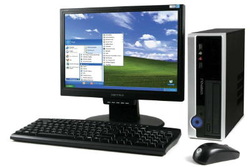
While PCs may not use resources as efficiently, they can still be built more to be more powerful (or upgraded more easily) and the user experience is becoming more friendly every time Microsoft takes another shot at it. A big advantage PC has is that they are more popular. Most businesses use PC as they have lower upfront costs (there is rampant debate about if Mac is actually any more expensive in the long run) and run most productivity software for business better (although Mac still has an edge with creative works like photo editing). This means more people are comfortable with Windows and people tend to like what they're comfortable with. It also means PC file versions will be better distributed as more people will be able to open the files. For example, MS Office files on Mac cannot be opened on a PC but PC Office files can be opened on a Mac.
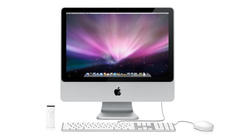
The biggest problem with Mac is the lack of software. More and more titles are coming over all the time, but the selection can be limiting. At times you'll find Mac versions of software are lacking (although there are times where it is better than the PC version) and often released well after the PC version. The more people that switch to systems running OSX, the better the software development will be for them. This also means that if you are upgrading your systems and changing over to Mac from a PC, you may have to repurchase some, if not all, of the software you use on daily basis. This can be a major cost but not insurmountable. Out of the box, Mac also comes with a variety of software not included on your PC and there are a number of cheap if not altogether free options that could lower this cost. You can also use Bootcamp to install and run Windows on your Mac which allows you the best of both worlds.
There is no clear answer of which system is better. Both have their ups and their downs, strengths and weaknesses. In general, PCs tend to be better for productivity work, especially with finance work and general data processing. Macs tend to excel in creative mediums for things like video, music and photo work. You can also do photo work on a PC and keep your books up-to-date on a Mac. If you are working on a budget and have limited resources, a PC is going to get you going for less, especially if you already have software for it. There is no overall right or wrong choice, there is just a better choice for you and your organization based on a number of factors. We're here and can help.

 RSS Feed
RSS Feed
